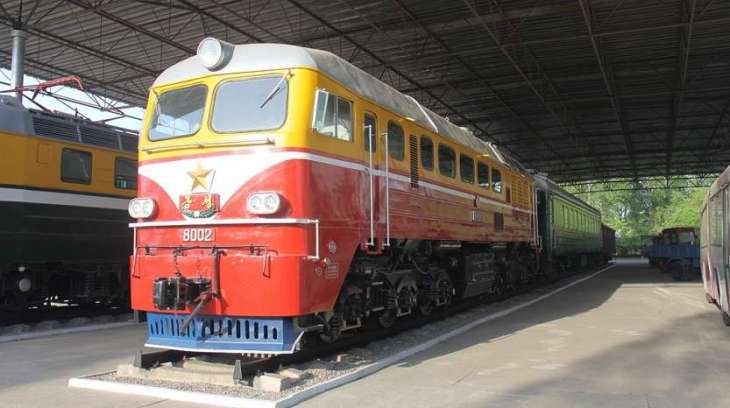North and South Korea are actively working on joining their railway systems, but the final network may still be unable to replace sea transport.
VLADIVOSTOK (Pakistan Point News / Sputnik - 17th September, 2018) North and South Korea are actively working on joining their railway systems, but the final network may still be unable to replace sea transport.
Last week, South Korean Deputy Minister for Land, Infrastructure and Transport Kim Jeong-ryeol said Pyongyang and Seoul were conducting joint research on linking their railways.
Some work has already been done in Khasan-Rajin region, Kim said at the Eastern Economic Forum (EEF), recently held in Russia's Vladivostok. The official added that the infrastructure of the railways connecting South Korea with the North and Russia would be upgraded.
South Korea is interested in working on the railway network connecting Russia's Khasan settlement with North Korea's city of Rason. Cargo could then be delivered from Rason to South Korean ports by sea.
The agreement on connecting the Trans-Korean Railway with the Trans-Siberian Railway was signed in Vladivostok about 10 years ago, but its implementation has been postponed for political reasons. The Primary reason for the delay has been the deterioration in relations between Pyongyang, Seoul and its ally, the United States, against the backdrop of the development of North Korean nuclear and missile programs.
UNLIKELY TO REPLACE SEA TRANSPORT
However, the new network is unlikely to replace sea transport, Lee Sung-woo, a member of the South Korean Presidential Committee on Northern Economic Cooperation, told Sputnik.
"The reality is that 85 percent of cargo is transported by sea all over the world and only 15 percent by rail. In particular, high value cargo cannot be shipped by rail because it's expensive. Wherever there are railways around the world, 85 percent of cargo will go by sea, but, depending on the nature of the cargo and the point of its destination, the choice may fall on the railway," Lee, who is also the vice president of logistics at the Korea Maritime Institute, explained.
The expert believed that it would take time to connect the railways of the North and the South, but even when this happened, no more than 15 percent of cargo would be sent via railway � the remainder would still go by sea.
"To cooperate, the South and the North should firstly modernize the ports rather than the railways and improve their profitability. As soon as this is done, we need to improve the nearest railways," Lee said.
Since President Moon Jae-in came to power in South Korea in May 2017, Seoul and Pyongyang have been slowly inching closer. Moon has already met twice with North Korean leader Kim Jong Un. The two officials have outlined their plans for restoring bilateral relations. North Korea has not carried out nuclear or missile tests in months.




